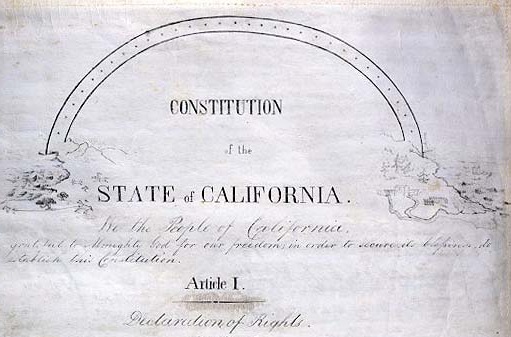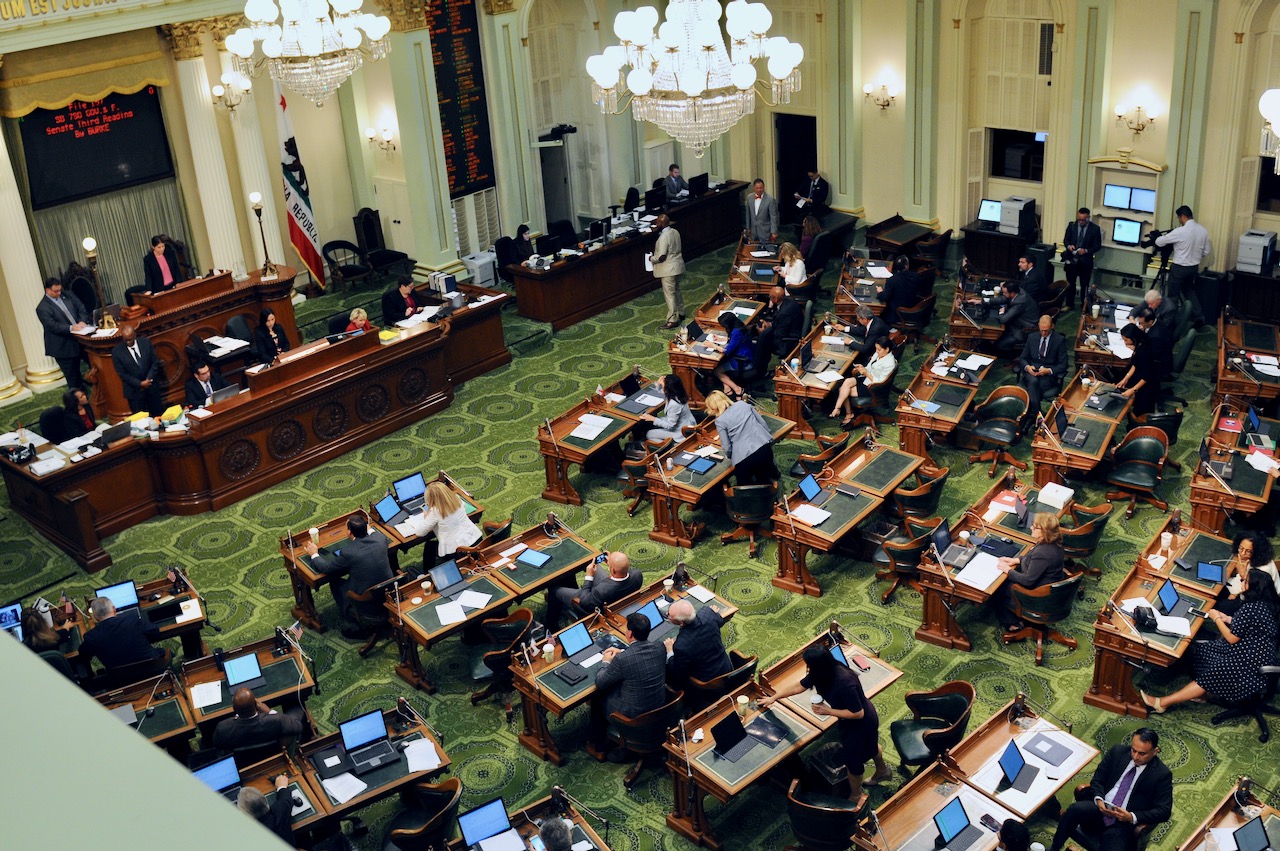
Elementary Students in Class. (Photo: SB Professional/Shutterstock)
A Visit with California’s School Counselors
Best to Keep One’s Own Counsel
By Thomas Buckley, January 9, 2023 5:22 pm
Part Two of the “Hidden in Plain Site” Series
Over the years, the position of school counselor has received its fair share of mockery.
From Mr. Frond of “Bob’s Burgers” to most people having at best a fleeting memory of having to schlump to the counselor’s office in high school so she could figure out how to limit the amount of pot you smoked so you could at least have a prayer of faking your way into college, the position of school counselor has always been subject to a certain dismissive disdain.
This is not entirely true – many counselors have provided real support to students and their families over the years and have had positive impacts on their school communities. From creating targeted lesson plans to college placement advice to just being able to chat with a trusted face about the horrors of teendom, counselors can serve a vital function.
Of course, though, this is 2023 and the ever-metastasizing education bureaucracy has to make sure administrators have something that sounds important to administrate, so the profession was bound to get caught up in the current nonsense of, well, practically everything.
Hence a look at the websites of the California Association of School Counselors (CASC), and it’s umbrella organization, the American School Counselor Association (ASCA) that represents the 120,000 or so counselors nationwide (California has about 12,000 alone.)
To start, both groups offer counselors industry standard training modules, helpful advice, opportunities to “meet and greet” others in the field, etc. – all of the standard things professional organizations do.
But it is the politically-charged specifics and positions taken that get, shall we say, interesting.
It’s a given, of course, that on the matter of “social justice,” both groups take strong “anti-racism” stands. The ASCA states explicitly that “By supporting anti-racist policies through their actions and expressed anti-racist ideas, school counselors embrace their roles as social justice advocates and change agents who examine and dismantle systems of oppression.”
Beyond fighting racism without, counselors are urged to fight racism within, to “do the work,” as it were to make sure they are not part of the problem and:
- Reflect regularly on their cultural worldviews (values, beliefs, assumptions, biases), seeking to understand how these views influence their practice
- Engage in the personal work necessary to identify and acknowledge blind spots, uncover and mitigate the influence of all biases, particularly implicit biases, and act for real change
- Initiate and/or participate in “courageous conversations” that move to discomfort on topics of injustice, racism, privilege, oppression and related issues
- Reflect on feelings and sources of personal resistance that might arise in exploring topics of racism, privilege, oppression, marginalization and bias
For the complete text, see here: https://www.schoolcounselor.org/Standards-Positions/Position-Statements/ASCA-Position-Statements/The-School-Counselor-and-Anti-Racist-Practices
Not to be out done on the issue, CASC seems to go further stating:
“The educational system is designed to perpetuate institutional racism, through implicit and explicit bias, disproportionate achievement and suspension rates, and eurocentric (sic) curriculum. The data shows that we are failing Black and Brown students. Black students are 3.5 times more likely to be suspended or expelled than their white peers, contributing to the school-to-prison pipeline especially for Black students. School counselors play a critical role in highlighting, disrupting, and dismantling these inequities.”
By placing race at the center of everything, CASC does seem to be downplaying other factors that just might be a bit more important to a student’s success, or it implies something rather disturbing.
It also appears that critical race theory – which the vast majority of educators say is not involved in what kids are being taught – does play a role in CASC’s thinking as a presentation at a recent event was described thusly: “This presentation introduces school counselors to the concept of Latinx Critical Race Theory (LatCrit) as a lens to help understand the racist experiences that Latino students encounter on school campus and how it influences their mental health.”
For all of CASC’s position statements, from which the above was taken, see HERE. It should be noted that one of the statements – the one involving LGBTQ+ rights – has been removed for whatever reason.
Complementing it’s stand on the systemic evil of the educational structure they are currently a part of, CASC has taken a strong position on the attempted “overthrow of the will of the people” on January 6, 2021, stating that: “Adults and children alike witnessed America’s racist roots on full display with images of Confederate flags, a noose hanging at the Capitol, and references to concentration camps.”
Not too sure about the factuality of the last two references, but CASC does want to emphasize the importance of the day, calling it a “pivotal time in the psyche of the American collective.”
Note the term “American collective” and one will better understand teaching tools proffered to discuss the event, from (bonus: with this link, you can see CASC’s 2020 thoughts on the pandemic – just click on “re-opening schools”) to this.
In fact, the PBS “lesson” involves this utterly untrue, parallel universe comparison: “Several different U.S. departments and law enforcement agencies were sent to Washington D.C. including the National Guard during Black Lives Matter protests over the summer, which were overall very peaceful. Contrast this with Wednesday’s insurrection at the nation’s Capitol in which individuals stormed the halls of Congress, and the National Guard was initially held back.”
Both organizations discuss non-racism related issues as well. ASCA sees “high-stakes test” (think SAT, etc.) as “valuable, but partial,” and that counselors should “advocate” for multiple criteria to be used when evaluating students. While they encourage comfortable test taking conditions and allowances for re-takes, the ASCA specifically counselors should not be involved directly in the process because it would be a waste of their precious time.
“Character education” is also important, though how that is exactly defined is rather nebulous as it involves “the embodiment of multidimensional virtues as the core component of human moral functioning.” For a closer look and/or to try to figure out exactly what ASCA means (and if you do let everyone know in the comments below; suffice to say there seems to be wiggle room on what is “good” character), see HERE:
And no discussion of education today would be complete with a look at gender.
Both CASC and ASCA whole-heartedly support the “affirming” approach to the issue and that whatever the student says whenever they say it is correct and true.
“Gender identity rests with the students,” ASCA states unequivocally, with names, pronouns, bathrooms, sports, etc. issues to be approached from this standpoint. And this right can be cloaked in confidentiality as the student’s “right to privacy and prohibition of disclosing students’ gender identity extends to students’ parents/guardians, with whom schools should work collaboratively, directed by students’ comfort about what and with whom to share their confidential information.”
(NOTE: as someone who has written governmenty-ish stuff like this, I can almost absolutely guarantee that the second clause starting at “with whom…” was tacked on not because they mean it but out of fear someone would ask them about the issue and they can now point to that masterpiece of meaningless wiggle as proving they do not have a blanket policy of hiding things from parents.)
The complete position statement can be found HERE.
The CASC, again, seems to go further on the issue, calling for “systemic advocacy” for LGBTQIA+ students, and learning how to go “Beyond Allyship” with a presentation at last October’s annual event involving “Research conducted by national LGBTQ+ organizations and climate surveys demonstrates LGBTQ+ youth face discrimination and barriers in K-12 schools. With Beyond Allyship, we aim to give recommendations for systemic advocacy in support of LGBTQ+ students. The presentation will cover an overview of LGBTQ+ terms, common issues faced by LGBTQ+ students, LGBTQ+ student rights, recommendations for advocacy in support of LGBTQ+ students, and resources which will be distributed digitally.”
To reiterate, CASC’s position statement on the issue has been removed from its website.
With counselors trying to expand their muscle in the caring continuum – this recent bill passed in Sacramento enshrining/defining the role more definitively: and ASCA following a similar path and pushing a national strategy to increase the number of school counselors to one per 250 students (which would grow the industry to about 200,000 counselors,) both groups seem poised to ride the woke wave to greater power and relevance.
In that spirit, let’s check-in one last time with Mr. Frond:
- Mayor Bass’s Billionaire Bake Sale - April 17, 2024
- From Sheriff to Governor: Riverside Sheriff Mulling Run - April 16, 2024
- SANDAG Toll Road Foul Up: Thousands of Charging Mistakes Made - April 16, 2024




Thank you Mr. Buckley.
Here is to hoping that parents and school board members will reflect on your article.
This woke brain washing of our youth is the foundational rot of our society.
“Over-educated-idiots” my word!
Ugh, parents need to pull their kids out of these state sanctioned indocrtrination centers.
Just Rat indoctrination in schools by yet another layer of administrators.